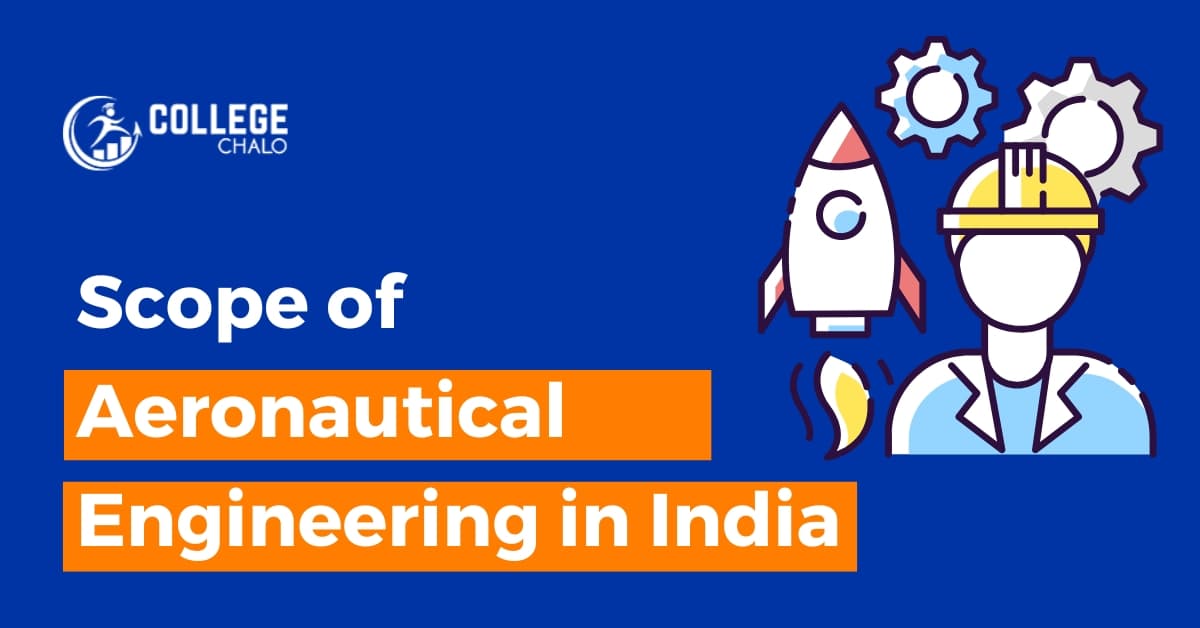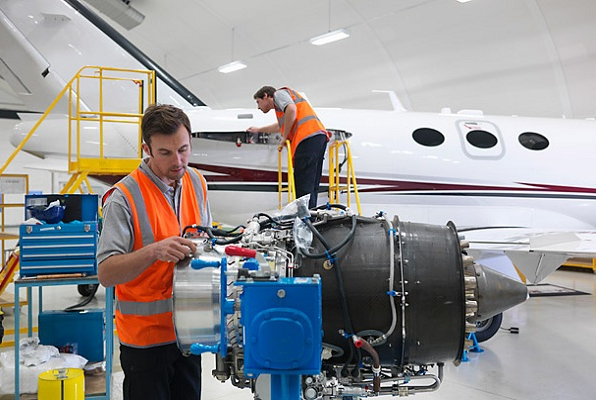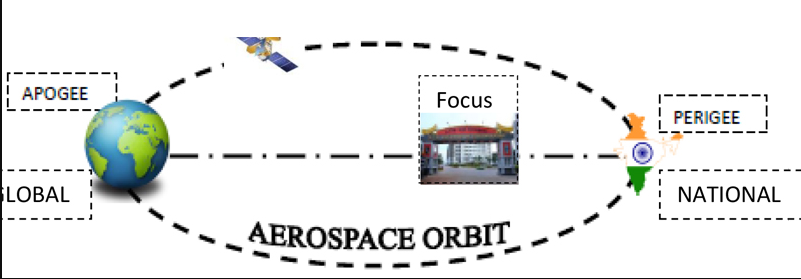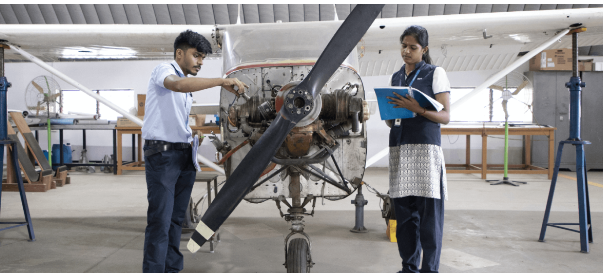Scope of Aeronautical Engineering in India

Scope of Aeronautical Engineering in India
Aeronautical engineers will be in high demand as India moves towards a more manufacturing-focused economy, both of which are increasing fields for the discipline of Aeronautical Engineering. The scope of Aeronautical Engineering in India and throughout the world is at incremental growth and great demand. Both the commercial airline industry and the government-funded aircraft industry need them.


The field of aeronautical engineering focuses on studying aeroplanes and spacecraft within the Earth’s atmosphere, including its research, design, development, construction, and maintenance. Aerodynamics includes studying the plane’s control surfaces, lifts, airfoil, and drag, and how they behave.
A subfield of aeronautical engineering is aeronautics. Engineers specialising in aerospace are the ones who study, develop, and build things like satellite launch vehicles, defensive missiles, and satellites for use in space and other non-terrestrial environments.
What Aeronautical Engineer Study?

Aeronautical engineering is the field that focuses on aeroplanes and helicopters, including their development, assembly, testing, and repair. It’s a competitive and exciting major for students interested in careers in the aviation sector.
The scope of Aeronautical engineers is vast as they can find satisfying work in a wide variety of fields, including aircraft design and manufacturing, automobiles, fan industries, turbines, high-speed trains, and unmanned aerial vehicles (UAVs). When it comes to the engineering of things like racing cars, high-end fans, wind turbines, and so on, aeronautical engineers have a major impact. The Indian aerospace sector is one of the world’s fastest-growing today, and it’s at a pivotal juncture.
Aeronautical engineering experts are in great demand as the number of people taking plane trips and conducting space missions continues to rise. If current trends continue, demand for skilled Aerospace Engineers will skyrocket in the next years.

The following categories are included in Aerospace Engineering:
| Category | Components |
| Mechanics | Statics and Dynamics (engineering mechanics) |
| Mathematics | Mathematics |
| Materials | Materials science |
| Structures | Aircraft structures |
| Fluid Dynamics | Fluid Mechanics |
| Aerodynamics | Aeroelasticity |
| Control | Control engineering |
| Electrical | Electrotechnology |
| Dynamics | Astro-dynamics |
| Avionics | Avionics |
| Software | Software |
| Safety | Risk and reliability |
| Acoustics | Aeroacoustics, Noise control |
| Flight Testing | Flight test |
| Miscellaneous | Radar Cross-Section |
Students who major in Aeronautical Engineering have a thorough understanding of the processes involved in the study, design, and creation of aeroplanes and related technology. They can study a wide range of aircraft types, from helicopters to jets to rockets to drones to rotorcraft to spacecraft to launch vehicles to missiles.
They have the credentials to operate in any sector of the aviation industry, including government, research, defence, production, maintenance, education, and so on. UPSE also offers the opportunity for an aeronautical engineer to serve as an Aeronautical Officer.

Scope of Aeronautical Engineering in Diverse Employment Firms & Agencies

The Scope of Aeronautical Engineering in India has increased manifold as the pace of development as an economy is on a higher scale. Aeronautical engineers may expect a difficult career and high compensation with the right combination of education and soft skills.
The Indian Air Force, the Defence Ministry, airlines, aviation industries, and research institutions like NASA and ISRO all employ aeronautical engineers. There is a growing demand for aeronautical engineers as many original equipment manufacturers (OEMs) are now setting up shops in India. Airbus, Boeing India, Lockheed Martin India, Mercedes-Benz, Eaton, GE India, etc. are only a few original equipment manufacturers already operating in Indian airspace.
Scope of Aeronautical Engineering in the Public Sector
Specifically discussing the Scope of Aeronautical Engineering in the government sector has a bright future. Among the most prominent government/defence sector recruiters are the Defence Research and Development Organisation (DRDO), Hindustan Aeronautics Limited (HAL), the Aeronautics Development Agency (ADA), Air India, the National Aerospace Laboratories (NAL), and the Directorate General of Civil Aviation (DGCA).
Scientist ‘B’ positions at DRDO are awarded annually to the top-scoring Aeronautical Engineering graduates in the country’s Graduate Aptitude Test for Engineering. Aerospace engineers are in high demand, and many government research facilities provide graduate-level training programmes.
Scope of Aeronautical Engineering in the Private Sector
Moving on to the Scope of Aeronautical Engineering in the private sector after the LPG (Liberalization, Privatization and Globalization ) policy has increased. The large corporations in India benefit from the presence of a larger number of private enterprises. Companies like Godrej & Boyce Manufacturing Company, Taneja Aerospace & Aviation Ltd., Honeywell Aerospace, Altran India, Bharat Electronics Ltd., and Mahindra Aerospace are also involved.
The aerospace industry in India is rapidly expanding. As a result, the number of new businesses is growing. Many of these new businesses provide services to large corporations, such as production, consulting, and maintenance.
Aeronautical engineers can find work with a variety of airlines. Indigo, SpiceJet, Air India, and others fall within this category. If you do well on the Graduate Aptitude Test in Engineering (GATE) test, you can continue your education beyond graduation at some of India’s top universities.
Scope of Aeronautical Engineering in different job roles

The field of engineering is the most esteemed academic discipline everywhere. And it is the finest available pairing of Scope of Aeronautical Engineering with a brighter successful future. Because of the enormous demand for their services, countries like India, and countries all over the world in general, need access to qualified Aeronautical Engineers. Therefore, India accounts for more than 50% of all engineers working for UN agencies.
Racing car designer, flight mechanics engineer, graduate engineer trainee, aircraft production engineer, assistant technical officer, aviation safety officer, and space scientist are just a few of the jobs available to those with degrees in aeronautical engineering.
Conclusion
The scope of Aeronautical Engineering in India is huge and growing. The aviation sector is developing quickly, and the Indian government’s aim for Atmanirbhar Bharat (Self-reliant India) requires indigenous aircraft and aviation-related technology development. Aeronautical Engineering graduates can work in aircraft design, research, manufacture, maintenance, operations, and air traffic control.
Aeronautical Engineering in India is rising, with more private and government colleges giving degrees and more aviation jobs. Aeronautical engineers will shape India’s air travel and transportation future as the aviation sector adapts to new technology. Aeronautical Engineers in India may have a successful career in this dynamic sector with the correct training.






